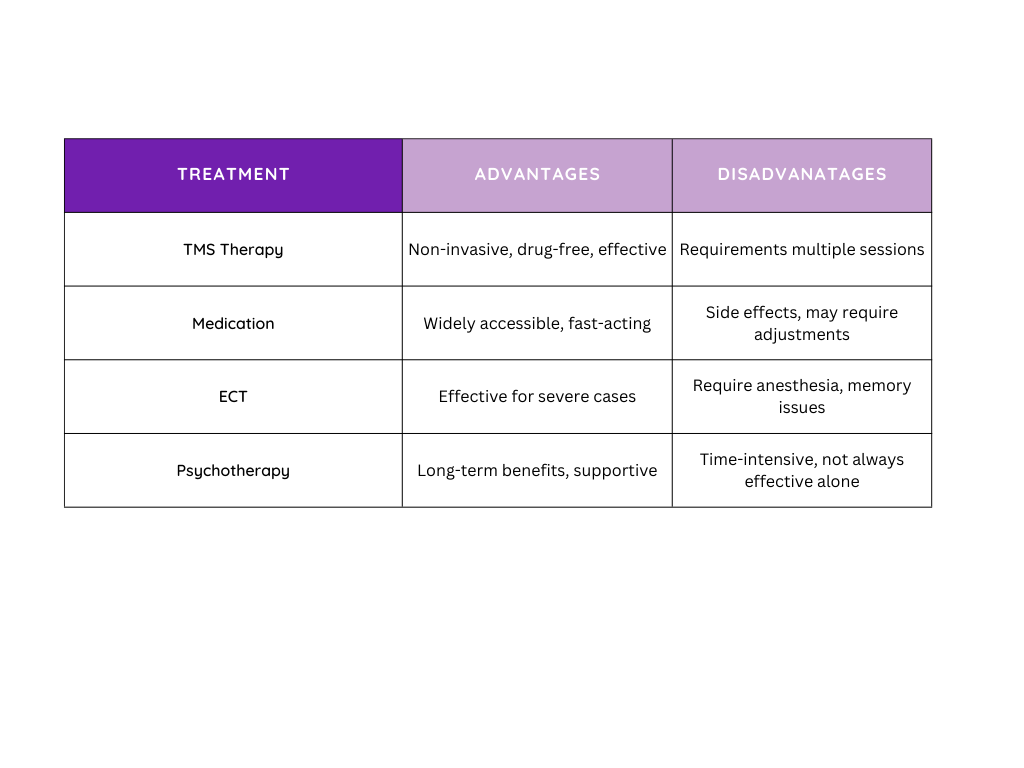Bipolar disorder is a complex mental health condition that affects millions worldwide, marked by alternating periods of depressive and manic episodes. For those living with bipolar depression, the low phases can be particularly debilitating, causing feelings of hopelessness, fatigue, and a loss of interest in life. While traditional treatments like medication and therapy provide relief for many, others seek alternative or supplementary solutions. This is where Transcranial Magnetic Stimulation (TMS) emerges as a promising option.
In this comprehensive guide, we’ll delve into everything you need to know about TMS for bipolar depression—how it works, its benefits, and why it’s becoming an increasingly popular treatment option.

Bipolar disorder is characterized by mood swings that include manic (or hypomanic) episodes and depressive episodes. Bipolar depression refers specifically to depressive periods, which can significantly impair a person’s quality of life. Symptoms often include:
For many, these depressive phases are challenging to treat, even with a combination of medications and psychotherapy. Mood stabilizers and antidepressants, commonly prescribed for bipolar disorder, may come with side effects or limited effectiveness. This has led to the exploration of innovative therapies like TMS.
Transcranial Magnetic Stimulation (TMS) is a non-invasive brain stimulation technique designed to target specific areas of the brain associated with mood regulation. The process involves placing a magnetic coil on the scalp, which emits pulses that stimulate neural activity in the prefrontal cortex—a region often underactive in individuals experiencing depression.
Unlike electroconvulsive therapy (ECT), TMS does not require anesthesia, and it doesn’t involve inducing seizures. This makes it a safer and more accessible option for many patients.
In bipolar depression, the brain’s communication pathways can become dysregulated, particularly in the prefrontal cortex. TMS works by:
TMS is typically administered five days a week for 4–6 weeks, each lasting about 20–40 minutes. Patients can return to their daily activities immediately afterward.
TMS has garnered attention for its numerous advantages, particularly for individuals who have not found relief through conventional treatments. Here are some key benefits:
TMS does not require surgery or sedation, making it a minimally invasive option with minimal risks. Side effects, such as mild headaches or scalp discomfort, are generally short-lived.
For individuals sensitive to medications or experiencing side effects from mood stabilizers or antidepressants, TMS offers a medication-free alternative.
Studies have shown that TMS can significantly reduce depressive symptoms in patients with treatment-resistant depression, including those with bipolar disorder.
With proper maintenance sessions, many patients experience sustained improvements in their mood and quality of life.
Unlike some treatments that may impair memory or concentration, TMS has been shown to enhance cognitive performance, particularly in areas like attention and decision-making.
TMS is often recommended for individuals who:
However, TMS may not be suitable for everyone. It is not recommended for individuals with:
Understanding what TMS involves can help ease any anxiety about the procedure. Here’s what you can expect:
Before starting TMS, you’ll meet with a qualified psychiatrist or neurologist to determine if you’re a good candidate. This may involve a review of your medical history, a discussion of your symptoms, and a physical exam.
During the first session, the clinician will use specialized equipment to locate the precise area of the brain to target. This ensures the magnetic pulses are delivered to the optimal location.
Each session involves sitting in a comfortable chair while a magnetic coil is positioned on your scalp. You’ll hear a clicking sound and feel a tapping sensation, but the process is generally painless. Sessions typically last 20–40 minutes.
TMS requires no downtime, allowing you to resume your normal activities immediately after each session. Some patients notice improvements after just a few sessions, though most experience significant changes by the end of the treatment cycle.
Numerous studies and patient testimonials highlight the transformative impact of TMS for bipolar depression. For instance:
How does TMS compare to other available treatments for bipolar depression?

TMS often complements rather than replaces these treatments, providing an additional layer of support for patients seeking holistic care.
Most insurance providers, including Medicare and Medicaid, cover TMS for treatment-resistant depression. However, coverage for bipolar depression specifically may vary depending on your provider and location. Consult with your insurance company or TMS clinic for detailed information.
If bipolar depression has been interfering with your life, TMS offers a beacon of hope. By targeting the root causes of depressive symptoms with precision and care, TMS can help you reclaim your mental well-being and enjoy a brighter future.
At Advantage TMS, our experienced team is dedicated to guiding you through the process, from initial consultation to post-treatment support. Located in Clearwater, Florida, we offer flexible scheduling, including evening and weekend appointments, to accommodate your needs.
TMS is revolutionizing how we approach treatment for bipolar depression, providing a safe, effective, and medication-free option for those seeking lasting relief. While it may not be a one-size-fits-all solution, its growing success underscores its potential as a game-changer in mental health care.
To learn more about how TMS can help manage bipolar depression, contact Advantage TMS today to schedule a free consultation. Let us help you take the first step toward a healthier, happier life.

Hirely Martinez, Licensed Clinical Social Worker (LCSW) and head of the Integrative TMS program at Advantage TMS, a medical center focused on treating depression, anxiety, OCD, and other mental health disorders.
© 2024 Advantage Mental Health. All Rights Reserved.
Our office is closed Wednesday, October 9 and Thursday, October 10, 2024, due to the storm. If you have any questions or urgent requests, please email us at info@advantagementalhealth.com.
Please fill out the form if you have a patient interested in learning more about TMS treatment. We appreciate the referral and partnership.
Next Steps:
• Our TMS Coordinator will contact the patient to schedule a complimentary information session.
• If the patient decides to seek TMS treatment with Advantage TMS, we will communicate with you when necessary and the patient will continue to work with you while receiving treatment.
Questions?
• Please don’t hesitate to contact us at 727-600-8093 or info@advantagementalhealth.com
